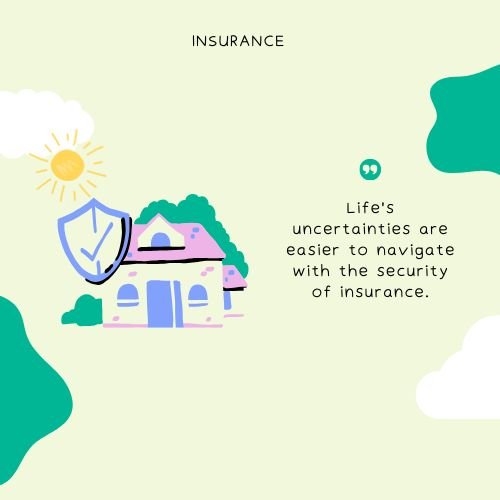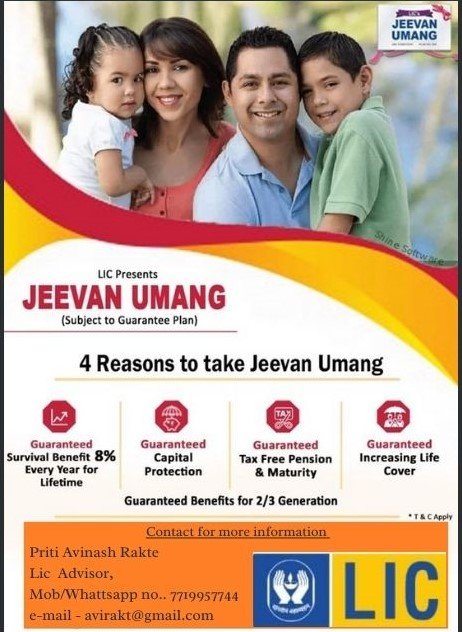Insurance: Your Shield Against the Unexpected

Insurance is often seen as an optional extra, but in truth, it’s a critical part of financial security. Rather than being a luxury, it’s a protective measure that shields individuals and families from unexpected financial burdens. Regardless of your income level—whether you’re financially comfortable or facing challenges—insurance plays a crucial role in creating a strong and secure financial foundation.
Why Do We Need Insurance?
Risk Management
Risk management involves identifying potential dangers, assessing their impact, and taking steps to reduce or avoid them. While this approach is vital for both businesses and individuals, its significance is especially critical for those living in poverty, where the stakes are far higher.
The Vulnerability of the Uninsured Poor :
A large portion of the world’s population, particularly in developing regions, lives below the poverty line. For many of these individuals, survival depends on working in high-risk sectors where safety protocols are often minimal or non-existent. These industries include:
Construction: Workers face the danger of falling from heights, handling heavy machinery, and exposure to harmful chemicals.
Agriculture: Risks include pesticide exposure, accidents with farm equipment, and the unpredictable nature of weather conditions.
Mining: Hazards include toxic chemicals, cave-ins, and accidents that occur deep underground.
Informal Sector Jobs: These positions often lack basic worker protections and can involve a variety of unregulated risks.
The Devastating Consequences of Accidents and Illnesses:
For workers in these high-risk jobs, accidents or illness can have devastating effects. Without insurance, they are left vulnerable to significant financial strain, and the consequences can include:
Crippling Medical Debt: Treatment for accidents or illnesses can be financially overwhelming, especially without insurance, leading families into further poverty.
Loss of Income: When a worker becomes sick or injured, they may be unable to earn, leaving the family without a primary source of income.
Risk of Homelessness: Families may be forced to sell their possessions or even their homes to cover mounting medical expenses.
Food Insecurity: Reduced household income can lead to inadequate nutrition, particularly for children.
Cycle of Poverty: Financial hardship often limits access to education and opportunities, reinforcing generational poverty.
Table of Contents
ToggleHow Insurance Helps Mitigate These Risks
Insurance offers a critical safety net that can help protect families from these financial catastrophes. For the uninsured poor, having access to insurance can make a world of difference by:
Covering Medical Costs: Health insurance can help pay for doctor visits, hospital stays, and treatments, preventing individuals from falling into debt due to medical emergencies.
Replacing Lost Income: Disability insurance can provide financial support if a person is unable to work due to illness or injury.
Protecting Assets: Property insurance can help safeguard a home or belongings from damage, theft, or loss.
Reducing Stress: Knowing that there is some financial backup in case of emergencies can provide emotional relief during challenging times.
Risk mitigation is a necessary strategy for everyone, but it is especially crucial for the uninsured poor, who face far greater vulnerabilities. By understanding the specific risks they face and introducing policies that provide adequate protections, we can help prevent financial ruin and create a more equitable society where everyone has the chance to thrive.
Financial Security
Insurance is often viewed as a cornerstone of financial security, acting as a protective barrier that shields individuals and families from the financial turmoil caused by unexpected events. By transferring the financial risks associated with unforeseen events to an insurance company, people can safeguard their assets, preserve their income, and ensure their long-term financial stability. Here’s a more detailed look at how insurance helps to create and maintain financial security across various life scenarios.
1. Protecting Against Unexpected Medical Costs
Health-related expenses are often one of the most significant financial burdens people face. Without adequate coverage, a sudden illness or injury can lead to overwhelming debt, potentially depleting savings and jeopardizing financial stability.
Health Insurance: This is the most common form of medical insurance, offering a comprehensive package that covers doctor visits, hospital stays, surgeries, prescription medications, and preventative care. With the rising cost of healthcare, having health insurance can prevent major financial setbacks and ensure you have access to necessary treatments without the added worry of crippling medical bills.
Critical Illness Insurance: Unlike regular health insurance, critical illness insurance provides a lump sum payout if you are diagnosed with a life-threatening condition, such as cancer, stroke, or heart disease. This money can help cover medical treatments, but also other expenses like modifications to your home or loss of income while you recover. It allows you to focus on your recovery without worrying about finances.
2. Safeguarding Income and Protecting Future Earnings
Income is one of the most critical components of financial security. If you’re unable to earn due to an injury, illness, or death, insurance can step in to ensure your financial stability remains intact.
Disability Insurance: If you become disabled and unable to work due to illness or injury, disability insurance provides income replacement, typically covering 50-70% of your regular earnings. This coverage ensures that you can still pay for living expenses, bills, and other financial obligations, protecting your quality of life during a challenging time.
Life Insurance: Life insurance is perhaps one of the most well-known forms of coverage. In the event of your untimely death, life insurance pays a lump sum or series of payments to your beneficiaries. This provides your family with the financial means to cover funeral costs, pay off debts (like mortgages or loans), and maintain their standard of living. For families with young children or dependents, life insurance offers a way to secure their future and ensure their financial well-being.
3. Protecting Valuable Assets and Property
Life is unpredictable, and unforeseen events like accidents, natural disasters, or theft can put significant financial strain on individuals and families. Insurance plays a pivotal role in protecting the physical assets you’ve worked hard to accumulate, helping you recover without depleting your savings or taking on debt.
Property Insurance: This type of insurance is designed to protect your home and personal belongings from damage or loss due to events like fires, theft, vandalism, or natural disasters (such as hurricanes, tornadoes, or earthquakes). Homeowners insurance can also cover liability costs if someone is injured on your property, helping to prevent financial hardship in the case of legal claims or medical bills.
Auto Insurance: Auto insurance is mandatory in most states and protects you financially if you’re involved in an accident or if your vehicle is damaged or stolen. Comprehensive auto insurance covers a variety of risks, including collision, theft, vandalism, and weather-related damage, ensuring that the cost of repairs or replacements doesn’t fall entirely on you.
Renters Insurance: Even if you don’t own a home, renters insurance can protect your personal property if you live in a rental property. It covers damage or loss due to fire, theft, or other disasters, and may also provide liability protection if someone is injured in your rental unit.
4. Mitigating Business Risks
Business owners face a unique set of financial risks. Whether you’re a small business owner or managing a larger corporation, having the right insurance coverage in place is essential to protect the business from a variety of potential setbacks.
Business Insurance: There are many types of business insurance, each designed to protect against specific risks. Common forms include:
Property Insurance: Covers damage to business premises, equipment, and inventory due to fire, theft, or vandalism.
Liability Insurance: Protects against legal claims and lawsuits, such as personal injury or product liability claims.
Business Interruption Insurance: Provides compensation for lost income if your business operations are disrupted due to a covered event, like a natural disaster or fire.
Cyber Insurance: Protects businesses from financial loss due to cyberattacks, data breaches, or other online threats.
Business insurance helps ensure that your company can continue to operate and recover swiftly after a financial setback, making it a vital part of long-term success and stability.
5. Tailoring Insurance to Meet Specific Needs
The key to using insurance as an effective financial safety net is to choose the right types of coverage for your unique circumstances. Different individuals and businesses have different needs, and modern insurance products allow for customized policies that align with personal, family, or business priorities.
For instance, families with children may prioritize life insurance and health insurance, while business owners may focus more on liability and business interruption coverage.
People living in disaster-prone areas may need additional coverage, such as flood or earthquake insurance, while individuals with significant medical history might benefit from additional critical illness coverage.
Insurance empowers individuals to take calculated risks, pursue their dreams, and safeguard their future. It allows you to focus on your personal or professional goals with the confidence that, should the unexpected occur, you have the protection and resources needed to recover.
Insurance plays a vital role in protecting both individuals and businesses from the financial consequences of unforeseen events. Whether it’s securing your income, protecting your assets, covering medical expenses, or managing business risks, the right insurance coverage provides peace of mind and a solid foundation for financial security. Understanding the types of insurance available and how they can be tailored to your specific needs is essential to ensuring that you and your loved ones are protected, no matter what challenges life may throw your way. Your Shield Against the Unexpected. It allows you to focus on your goals with confidence, knowing that you have the necessary protection and resources to recover from unforeseen events. Whether it’s securing your income, protecting your assets, covering medical expenses, or managing business risks, insurance provides peace of mind and financial security. Understand the available types of insurance and tailor them to your needs to ensure comprehensive protection for you and your loved ones.



My brother recommended I might like this blog.
He was entirely right. This post truly made my day.
You can not imagine simply how much time I had spent for this information! Thanks!
Thanks for encouraging me.
Hello 🙂 I am Ƭommy, its my first occasion to commenting
anyplace, when і read this paragгaph i thought i could
also create comment due to this brilliant post Have you considered promoting
yօur blog? add it to SEO Directoгy right now 🙂 https://katalog.xmc.pl
Feel free to surf to my webpage Comprehensive cultural hub
Thanks for encouraging me.
Great info. Lucky me I came across your website by chance (stumbleupon).
I’ve book-marked it for later!
Thank you so much for your kind words, I’m thrilled to hear that you found my blog and enjoyed it.
I truly appreciate you taking the time to bookmark it.